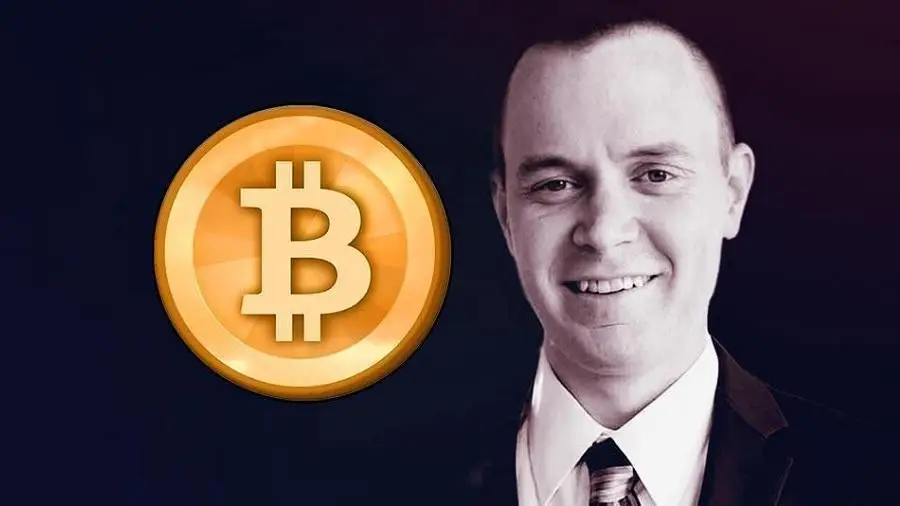What is a decentralized prediction market?
A Decentralized Prediction Market (DPM) is a digital platform where users can bet on the outcome of future events without the involvement of third parties. If participants correctly predict the outcome, they receive a financial reward. In DPM, users can create their own prediction “markets” for various events, in business, sports, weather, and politics, most often with binary outcomes (e.g., “Yes” or “No”).
DPMs are based on blockchain technology, which provides transparency in prediction markets. Self-executing contracts (smart contracts), the terms of which are written in code, automate the process of creating and settling prediction markets, generally determining the outcome of disputes fairly without the help of a third party.
Participants can interact with smart contracts to place bets, make predictions, and receive payouts as events occur.
How Decentralized Prediction Markets Work
Let’s consider the logic of DPM operation using Polymarket as an example. This is a decentralized betting platform that is not custodial – that is, it does not store users’ funds. And it does not receive profit from bets. All transactions are made in cryptocurrency, all processes are automated on the Ethereum blockchain.
The following schemes are possible there: binary markets, categorical markets and scalar markets.
-
Binary markets – This is the simplest type of market, offering two possible outcomes that are valued at $1 or $0. These markets are structured as yes or no questions, where users can buy stocks that represent their prediction. The stock prices are based on odds that represent the percentage probability of an event occurring. If the probability is estimated at 50%, the stock will be worth 50 cents. If the predicted outcome comes true, the stock price becomes $1. Otherwise, it loses its value. For example, a question might be, “Will Bitcoin be worth more than $100,000 on January 1, 2025?”
-
Category markets include more than two options, allowing bets to be placed on a specific outcome. These markets are structured as multiple-choice questions, where participants can buy shares representing a specific outcome. The final payout depends on what ultimately happens. For example, the question might be, “Which actor will be the highest paid in 2024?” The list of options would therefore consist of a long list of contending actors.
-
Scalar markets are determined by a value in a given range, which is determined by the final outcome. These markets are structured as questions with numerical answers, and participants can buy shares by specifying a specific value. The payout will be proportional to the difference between the final value and the chosen one. For example, the question might be: “How many posts on social network Y will such-and-such a media personality write?”
DPMs offer a wide range of tools to create prediction markets, and platforms for such markets attract big money. As of the end of July 2024, Polymarket’s total trading volume exceeded $1 billion.
However, it is important to note that DPMs are still a relatively new and experimental technology and come with their own challenges and risks. For example, the regulatory environment for DPMs is still undefined in many countries. There is a risk that governments could crack down on these platforms. Additionally, because DPMs are decentralized, there is a risk that they could be used for illegal activities such as insider trading or market manipulation.
The issue of regulation
Let’s look at the legal side of the issue in more detail. The laws of many countries seriously regulate bets and gambling, and according to formal features, decentralized forecast markets may be subject to special regulation, for example, in terms of taxes or licensing. And it may be that DPMs are completely banned somewhere, related to gambling.
DPMs take steps to avoid violating gambling laws. For example, some platforms only allow predictions on a narrow range of events. And of course, many prediction markets use virtual tokens or “play money” in jurisdictions where online gambling is illegal. This could hypothetically help differentiate DPM from traditional gaming platforms and increase the likelihood of staying within the legal framework.
But all this is still very conditional. It is still a long way off until comprehensive DPM regulation appears somewhere.
But decentralized prediction markets themselves are emerging. Because DPMs are decentralized, they technically can afford not to be bound by the same rules as traditional gaming platforms. They are inherently harder to block or ban. This could make it harder for governments to enforce gambling laws and could create a legal gray area.
In some countries, such as the United States, gambling is strictly regulated and in some cases illegal. DPMs that allow predictions to be made about events with uncertain outcomes, such as sports games or election results, may in principle be considered illegal gambling. Additionally, even in countries where online gambling is legal, DPMs may be subject to the same rules that govern traditional gaming platforms, such as licensing and reporting requirements.
This is exactly the situation in Russia. To carry out bookmaking activities, you need a license and many other conditions must be met, many of which decentralized forecast markets will not be able to fulfill purely technically. At the very least because after fulfilling the requirements, they will immediately become centralized and will no longer differ from regular bookmakers. Therefore, DPMs cannot yet be called legal in Russia.
Decentralized Prediction Markets as a Data Source
Does this mean that law-abiding people in countries where laws are not favorable to DPM should ignore the existence of such a phenomenon? Not necessarily.
The point is that one of the key advantages of DPM is the ability to obtain reliable data on how people assess the probability of an event occurring. Moreover, this data can be collected from a very wide sample in a decentralized and trustless way.
Since the markets are not controlled by a single entity, users can be confident that the results are fair and not subject to manipulation. Additionally, since the markets are based on blockchain technology, they are auditable, which helps ensure that they operate transparently.
An interesting example here would be predicting who will win the 2024 US presidential election.
What DPM Says About US Elections
On Polymarket, a contract related to the US elections has attracted more than $600 million. Currently, the main candidates, Donald Trump and Kamala Harris, are neck and neck – 48% for the former and 49% for the latter.
According to the dynamics of forecasts, there was not always parity. When Joe Biden was still in the race, Trump took over the forecast lead, which was exacerbated by debates and rumors that the incumbent president would leave the race. When the rumors were confirmed and it became known that Harris would be the Democratic candidate, her chances skyrocketed. So much so that the number of those betting on Harris equaled the number of those who believed in Trump’s victory, and then even surpassed it by almost 10% at one point. Now forecasts are again
got closer.
In general, the dynamics of forecasts on the decentralized market are very close to the data published by analysts. Most American polls now estimate the alignment of forces of candidates close to the figures that we can see on Polymarket. That is, in principle, the data that is in DPM can be considered quite representative.
Conclusion
Decentralized prediction markets are an interesting and innovative use of blockchain technology. Their popularity is logical, as blockchain can bring a high degree of transparency to the area of disputes and betting, while reducing costs. At the same time, the legal status of such platforms can be questionable – many jurisdictions classify such activities as gambling and actively combat them.
This material and the information in it is not an individual or any other investment recommendation. The opinion of the editors may not coincide with the opinions of analytical portals and experts.
Source: Bits
I am an experienced journalist, writer, and editor with a passion for finance and business news. I have been working in the journalism field for over 6 years, covering a variety of topics from finance to technology. As an author at World Stock Market, I specialize in finance business-related topics.







